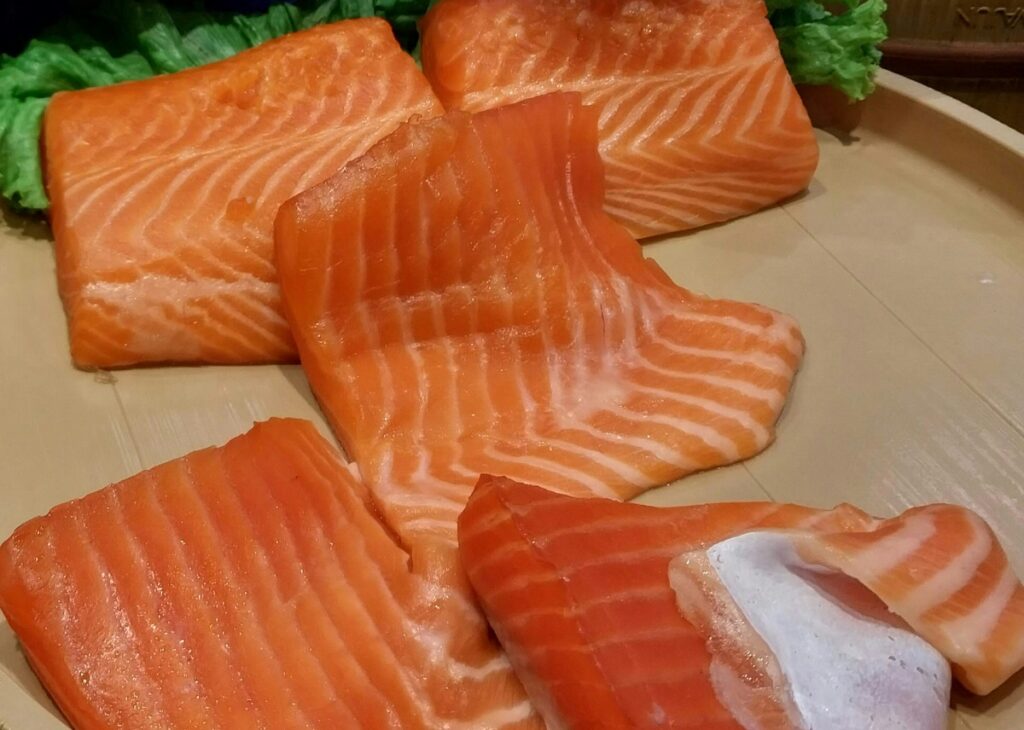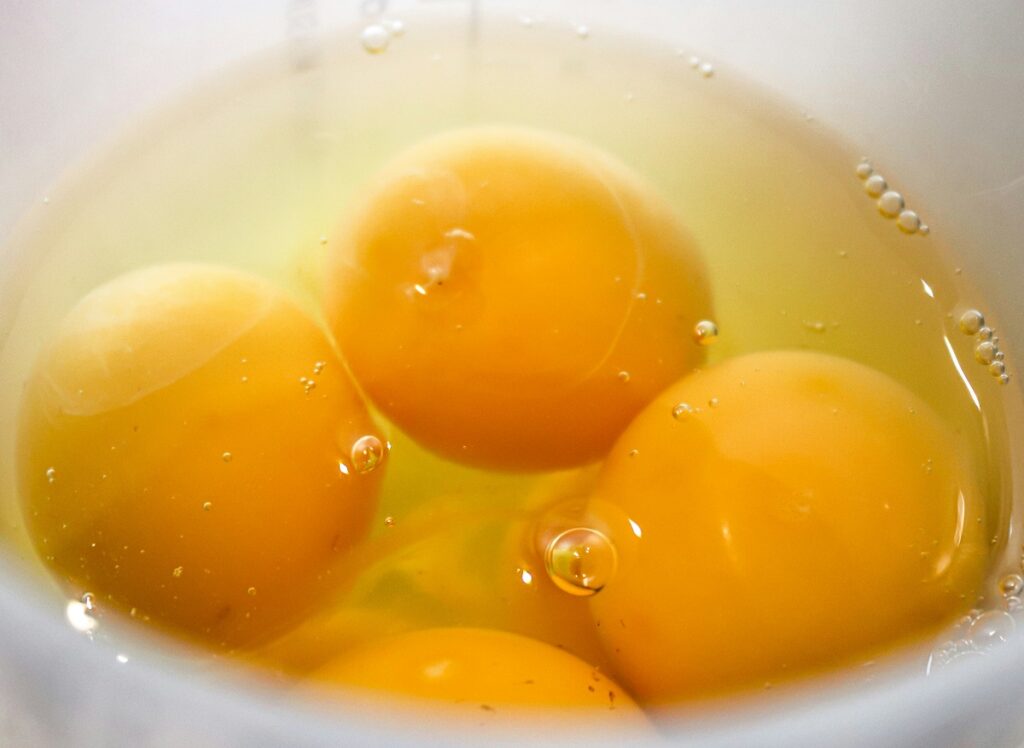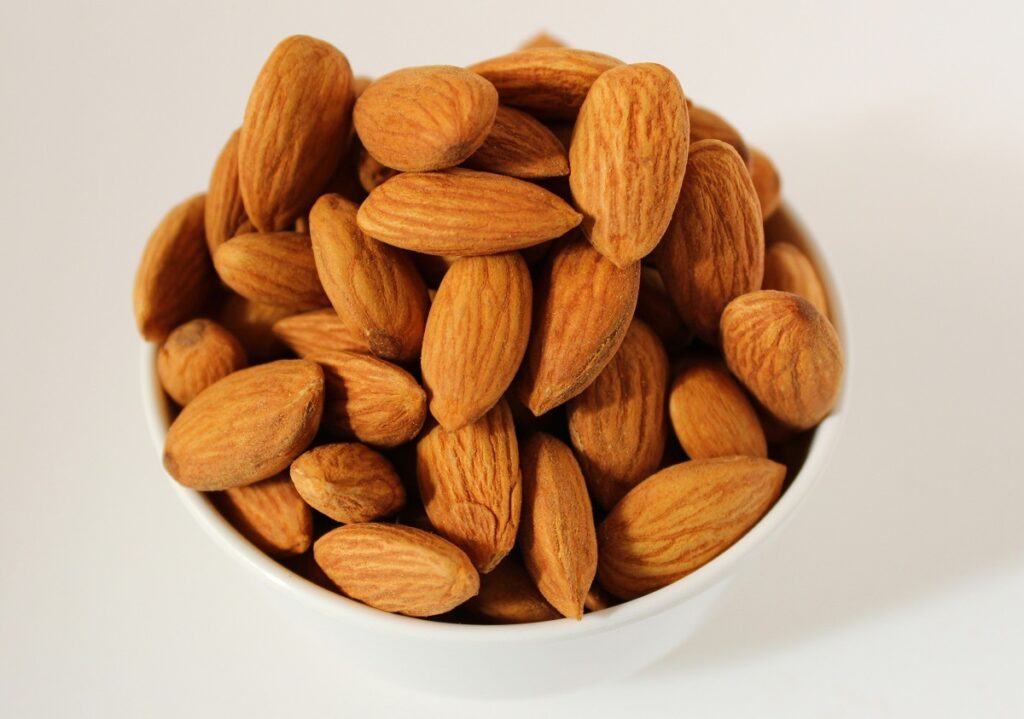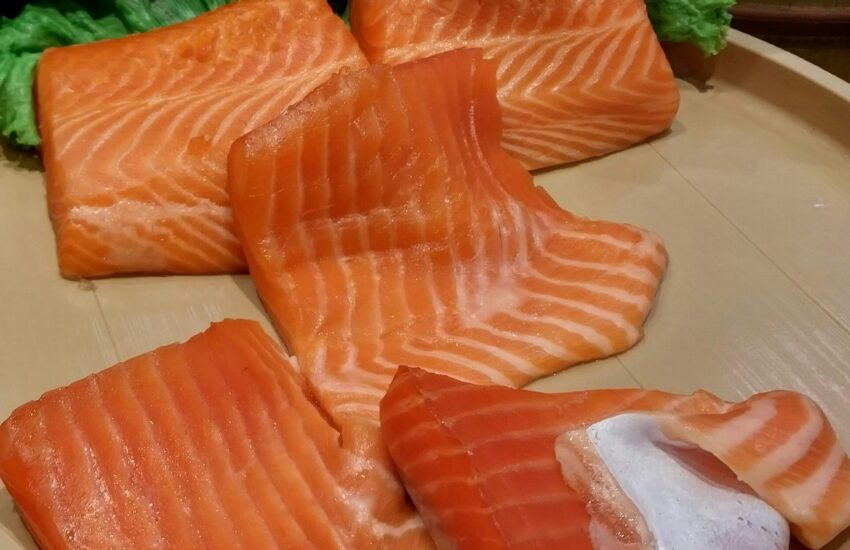As the winter months approach, many people experience a drop in their vitamin D levels due to a lack of sunlight. Vitamin D, also known as the “sunshine vitamin,” is produced by the body when the skin is exposed to sunlight. However, during the winter months, shorter days, colder temperatures, and more time spent indoors often lead to insufficient exposure to the sun. As a result, vitamin D deficiency becomes a concern for many individuals. Fortunately, there are several foods rich in vitamin D that can help fill the gap and keep your levels healthy even when the sun is scarce. In this article, Mohit Tandon Illinois will explore 9 foods that are particularly effective in fighting vitamin D deficiency during the winter. – Foods to Beat Vitamin D Deficiency in Winter : Mohit Tandon Illinois
1. Fatty Fish (Salmon, Mackerel, Sardines)
Fatty fish is one of the best natural sources of vitamin D. Fish like salmon, mackerel, and sardines contain omega-3 fatty acids and vitamin D, making them perfect for combating deficiency. A single serving of salmon can provide more than 100% of the daily recommended intake of vitamin D. The vitamin D content in fish varies depending on the species and whether it’s wild-caught or farmed. Wild-caught salmon tends to have a higher vitamin D content, but even farmed fish can provide a substantial amount. Mackerel and sardines are also great choices for those looking to increase their vitamin D intake in the winter.
Fatty fish are also rich in other nutrients, such as protein, healthy fats, and essential vitamins, making them an excellent addition to your diet. They help not only with boosting vitamin D levels but also with overall health, supporting heart health, and improving brain function. Try incorporating these fish into your diet by grilling, baking, or even adding them to salads or pastas.

2. Cod Liver Oil
Cod liver oil is one of the richest sources of vitamin D, making it a fantastic supplement to help boost your levels during the winter months. Just a single tablespoon of cod liver oil can provide more than three times the daily recommended intake of vitamin D. Besides vitamin D, cod liver oil is also high in omega-3 fatty acids and vitamin A, both of which support immune function and cardiovascular health.
While cod liver oil can be consumed on its own as a supplement, it can also be added to smoothies or taken in capsule form. Despite its potent nutrient profile, many people find the flavor of cod liver oil unappealing. However, with the variety of flavored options available in the market today, it’s easier than ever to incorporate it into your routine without the strong taste. – Mohit Tandon Illinois

3. Egg Yolks
Eggs are another excellent food that can help combat vitamin D deficiency in winter. Specifically, the yolk of the egg contains significant amounts of vitamin D. While egg whites are a source of protein, the yolks contain essential vitamins, minerals, and healthy fats. One large egg yolk can provide around 40 IU of vitamin D. It is a good addition to your diet, especially when consumed regularly.
For those concerned about cholesterol, it’s important to note that moderate egg consumption—when part of a balanced diet—does not pose significant risks for most people. Eggs can be prepared in various ways, from scrambled to boiled or poached. It can be included in breakfasts, salads, or sandwiches.

4. Fortified Dairy Products (Milk, Yogurt, Cheese)
Many dairy products are fortified with vitamin D to help people meet their nutritional needs, especially during the winter months when sunlight exposure is limited. Milk, yogurt, and cheese are commonly fortified with vitamin D, making them easy and convenient options for increasing your intake.
A cup of fortified milk can provide around 100 IU of vitamin D, which is about 25% of the recommended daily intake for most adults. Yogurt and cheese can also be fortified, and some varieties contain up to 20-30% of your daily vitamin D needs per serving. In addition to vitamin D, these dairy products are also rich in calcium. Calcium works synergistically with vitamin D to support bone health. Consuming a variety of these fortified products can help you maintain healthy vitamin D levels throughout the winter.

5. Mushrooms (Especially Shiitake and Maitake)
Mushrooms are the only plant-based source of vitamin D. I makes them an essential food for vegetarians and vegans looking to boost their vitamin D intake. Unlike most plants, mushrooms have the ability to produce vitamin D when exposed to sunlight or ultraviolet (UV) light. Certain varieties, such as shiitake and maitake mushrooms, are particularly rich in vitamin D.
UV-exposed mushrooms can provide substantial amounts of vitamin D. For example, maitake mushrooms that have been exposed to UV light can provide over 100% of your daily vitamin D needs in just one serving. Wild mushrooms naturally produce vitamin D. However, commercially available mushrooms are often exposed to UV light to enhance their nutrient content. You can easily incorporate mushrooms into your meals by adding them to stir-fries, soups, salads, or even as a topping for pizzas.

6. Fortified Plant-Based Milks (Almond, Soy, Oat Milk)
For those who are lactose intolerant or following a plant-based diet, fortified plant-based milks like almond, soy, and oat milk are excellent alternatives to dairy. Many brands fortify these non-dairy milks with vitamin D to make them comparable to cow’s milk in terms of nutrient content. A cup of fortified almond or soy milk typically provides around 100 IU of vitamin D, making them great options for increasing intake during the winter months.
In addition to vitamin D, plant-based milks are often enriched with other essential nutrients, such as calcium, magnesium, and B vitamins, which further support overall health. You can use these plant-based milks in the same way as regular milk in coffee, smoothies, cereals, or baking, offering a versatile and dairy-free way to get your vitamin D.

7. Liver (Beef or Chicken)
Organ meats, particularly liver from beef or chicken, are excellent sources of vitamin D. While liver might not be a staple in every household, it is one of the most nutrient-dense foods available. Beef liver, for instance, contains a substantial amount of vitamin D, providing more than 200 IU per 3.5-ounce serving. In addition to vitamin D, liver contains iron, vitamin A, and B vitamins, all of which contribute to overall health.
Liver can be prepared in a variety of ways, including sautéing, grilling, or adding it to stews. While it’s not always a go-to food for everyone, incorporating liver into your diet on occasion can help fill the gap during the winter months when sunlight exposure is limited.
8. Fortified Cereals
Fortified cereals are another convenient food source for boosting vitamin D intake. Many breakfast cereals are fortified with vitamin D, making them an easy option for those who may have difficulty obtaining sufficient amounts of the vitamin through natural sources alone. A bowl of fortified cereal with milk can provide a significant portion of your daily vitamin D requirements.
Look for cereals that contain at least 10-20% of your daily vitamin D needs per serving, and be mindful of added sugars in some breakfast cereals. Pairing fortified cereals with a source of healthy fats or protein can help balance out the meal, providing sustained energy throughout the morning. – Mohit Tandon Illinois
9. Tofu and Other Fortified Plant Foods
Tofu is another excellent source of vitamin D for those following a vegetarian or vegan diet. Many brands of tofu are fortified with vitamin D, providing around 20-25% of the daily recommended intake in a single serving. Tofu is also a good source of protein, calcium, and iron, making it a well-rounded addition to any diet.
Other plant-based foods, such as certain fortified breads and orange juices, can also be good sources of vitamin D. Always check the labels for fortification and nutrient content to ensure you’re getting the vitamin D you need.

Conclusion
Vitamin D deficiency is a common concern during the winter months due to limited sunlight exposure. However, there are plenty of delicious and nutrient-rich foods available to help you maintain optimal vitamin D levels. Incorporating fatty fish like salmon and mackerel, fortified dairy products, plant-based milks, and even mushrooms into your diet can help prevent vitamin D deficiency. These 9 foods support your overall health throughout the colder months. By making these foods a regular part of your meals, you can ensure that you’re getting the vitamin D you need to stay healthy, strong, and energized during the winter.
